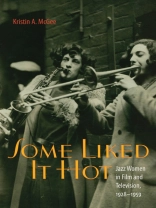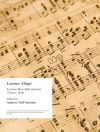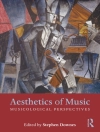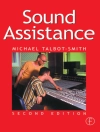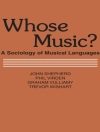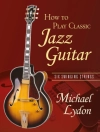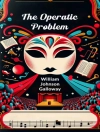<P>Women have been involved with jazz since its inception, but all too often their achievements were not as well known as those of their male counterparts. Some Liked It Hot looks at all-girl bands and jazz women from the 1920s through the 1950s and how they fit into the nascent mass culture, particularly film and television, to uncover some of the historical motivations for excluding women from the now firmly established jazz canon. This well-illustrated book chronicles who appeared where and when in over 80 performances, captured in both popular Hollywood productions and in relatively unknown films and television shows.</P><P>As Mc Gee shows, these performances reflected complex racial attitudes emerging in American culture during the first half of the twentieth century. Her analysis illuminates the heavily mediated representational strategies that jazz women adopted, highlighting the role that race played in constituting public performances of various styles of jazz from ‘swing’ to ‘hot’ and ‘sweet.’ The International Sweethearts of Rhythm, Hazel Scott, the Ingenues, Peggy Lee, and Paul Whiteman are just a few of the performers covered in the book, which also includes a detailed filmography.</P>
Tabella dei contenuti
<P>List of Illustrations<BR>Acknowledgments<BR>JAZZ CULTURE AND ALL-GIRL FILMS<BR>The Feminization of Mass Culture and the Novelty of All-Girl Bands<BR>The Ingenues and the Harlem Playgirls<BR>ALL GIRL BANDS AND SOUND FILMS IN THE SWING ERA<BR>Phil Spitalny’s Musical Queens<BR>The ‘Blonde Bombshell of Swing’: Ina Ray Hutton and Her Melodears<BR>SOUNDIES AND FEATURES DURING THE 1940s<BR>Swinging the Classics: Hazel Scott and Hollywood’s Musical-Racial Matrix<BR>Pin-ups, Patriotism, and Feminized Genres<BR>Swing-Centered Films and the Hour of Charm<BR>The International Sweethearts of Rhythm and Independent Black Sound Film<BR>VARIETY TELEVISION AND THE 1950s<BR>Television, Vaudeo, and Female Musical Hosts<BR>Variety Television Revives All-Girl Bands<BR>Television’s Musical Guests: Hazel Scott, Peggy Lee, and Lena Horne<BR>Conclusion: The Jazz Canon (Representations and Gendered Absences)<BR>Filmography<BR>Notes<BR>Bibliography •Index</P>
Circa l’autore
<P>KRISTIN A. Mc GEE is an assistant professor of popular music at the University of Groningen in the Netherlands.</P>
